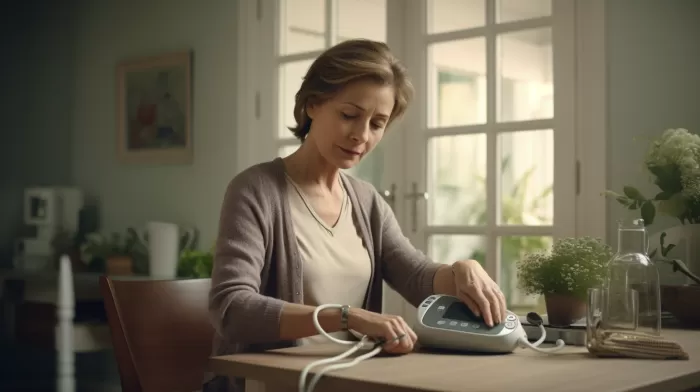High blood pressure, also known as hypertension, is a silent killer that affects millions of individuals around the world. Are you one of them?
More than half of all people aged 60 and above with high blood pressure aren’t even aware they have it. It’s even worse for young adults under 25 – a staggering two-thirds of those who have hypertension don’t know about it. The real shocker, however, is that medical researchers at Wake Forest Baptist Medical Center in Winston-Salem, North Carolina, discovered that women are in greater danger from hypertension than men.
The Seriousness of High Blood Pressure in Women
For a long time, the medical community believed that high blood pressure was the same for both sexes, and treatment was designed based on this premise. Carlos Ferrario, M.D., professor of surgery at Wake Forest Baptist, and lead author of the study exploring the differences between blood pressure in men and women, discovered that high blood pressure in women is a more serious condition.
During the past 30 years, there has been a significant drop in deaths from cardiovascular disease in men. However, the same cannot be said for women. In fact, heart disease has become the leading cause of death for women in the United States, accounting for about a third of all fatalities.
Ferrario’s research discovered that there is 30-40% more vascular disease in women compared to men with the same level of elevated blood pressure. Furthermore, there are significant physiological differences in women’s cardiovascular systems, including types and levels of hormones involved in blood pressure regulation, that contribute to the severity and frequency of heart disease.
Why It’s Crucial to Know Your Blood Pressure
High blood pressure often goes undetected because it typically presents no symptoms. It’s crucial to know your blood pressure status because untreated hypertension can lead to various health problems, such as heart attack, stroke, kidney disease, and vision loss.
To protect yourself and minimize risks, it’s essential to monitor your blood pressure regularly. The American Heart Association recommends that adults with normal blood pressure should get it checked at least once every two years. If your reading is higher or if you have other risk factors, such as a family history of hypertension, you should have it checked more frequently.
Lifestyle Changes to Prevent and Manage High Blood Pressure
The good news is that simple lifestyle changes can significantly impact your blood pressure levels and overall heart health, no matter your age or gender. Here are essential tips to prevent and manage high blood pressure:
- Eat healthily: A well-balanced diet with plenty of fruits, vegetables, whole grains, lean proteins, and low-fat dairy products can keep your blood pressure in check. Be mindful of your sodium intake and try to avoid processed and fast foods.
-
Maintain a healthy weight: Excess body weight can increase your risk of developing hypertension. So, aim for a weight that’s appropriate for your height and age, and consult your doctor for a personalized target.
-
Stay active: Aim for at least 150 minutes of moderate-intensity aerobic activity or 75 minutes of vigorous-intensity aerobic activity per week.
-
Limit alcohol intake: Drinking alcohol in moderation (one drink per day for women and up to two drinks per day for men) can have potential health benefits. However, excessive alcohol consumption can increase your blood pressure levels and overall cardiovascular risk.
-
Quit smoking: Smoking damages your blood vessels and raises your blood pressure. By quitting, you can significantly lower your risk of developing heart disease and improve your overall health.
-
Manage stress: High levels of stress can temporarily raise your blood pressure. Incorporate relaxation techniques such as deep breathing, yoga, or meditation, and seek professional help if necessary.
-
Monitor and follow your doctor’s advice: Regularly check your blood pressure, take prescribed medications if necessary, and follow your doctor’s recommendations for managing your blood pressure.
Take Control of Your Health
Now that you know the potential dangers of high blood pressure and the fact that women are even more at risk than men, it’s time to take control of your health. Start by knowing your blood pressure numbers and implementing necessary lifestyle changes, and encourage your loved ones to do the same. Let’s work together to beat the silent killer that is hypertension and promote better cardiovascular health for all.



